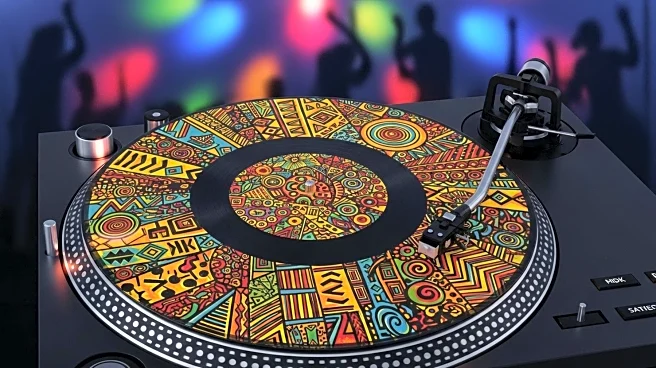What is the story about?
What's Happening?
Several African artists, including Amaarae, Rema, and DJ Tunez, have released new music that is making waves on global dance floors. Rema's latest track 'KELEBU' encourages fans to dance, drawing inspiration from various African and Caribbean musical styles. Amaarae's third studio album 'Black Star' incorporates elements from Ghanaian highlife, Brazilian baile funk, and Jersey club music. DJ Tunez collaborates with Wizkid and FOLA on 'One Condition,' a track that blends smooth jazz with Afrobeats. These releases highlight the diverse musical influences and the vibrant creativity of African artists, contributing to the global dance music scene.
Why It's Important?
The release of new music by African artists like Amaarae and Rema underscores the growing influence of African music on the global stage. These artists are not only expanding the reach of Afrobeats but are also integrating diverse musical styles, which enriches the global music landscape. The success of these tracks on international charts, such as Billboard's U.S. Afrobeats Songs chart, reflects the increasing demand for African music and its cultural significance. This trend could lead to more collaborations between African artists and international musicians, further promoting cultural exchange and diversity in the music industry.
What's Next?
As African music continues to gain popularity, it is likely that more artists will explore collaborations across genres and borders, potentially leading to innovative musical fusions. The success of these tracks may encourage record labels and producers to invest more in African talent, providing opportunities for artists to reach wider audiences. Additionally, the growing interest in African music could influence festival lineups and concert tours, bringing these artists to new markets and expanding their fan base.
Beyond the Headlines
The rise of African music on the global stage also highlights the cultural and economic potential of the continent's creative industries. As African artists gain international recognition, they contribute to the cultural diplomacy and soft power of their countries. This trend may inspire younger generations in Africa to pursue careers in the arts, fostering creativity and innovation. Furthermore, the global success of African music can lead to increased tourism and interest in African culture, benefiting local economies.















